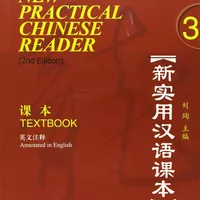27 - 2
27 - 2
Lesson 27 - Conversation 2
27 - 2
27 - 2
27 - 2
27 - 2
27 - 2
27 - 2
27 - 2
27 - 2
27 - 2
27 - 2
27 - 2
A: 你 喜欢 喝茶 还是 喝咖啡 ?
|||Tee trinken||Kaffee trinken
you|you|like|drinking tea|or|drink coffee
A: Do you prefer tea or coffee?
B: 来 中国 以前 我 喜欢 喝咖啡 。
||Chine||||
||China|before coming to China|||drinking coffee
B: I like to drink coffee before coming to China.
B: Antes de venir a China, me gustaba tomar café.
B:私は中国に来る前にコーヒーを飲むのが好きです。
现在 入乡随俗 我 也 习惯 喝茶 了 。
|À Rome|||||
now|When in Rome, do as the Romans do|||am used to||
||||gewöhnt||
|quando em Roma, faça como os romanos|||estou acostumado||
Now I am used to drinking tea when I go to the countryside.
Ahora hago como los romanos, y también estoy acostumbrado a tomar té.
今、郷に入れば郷に従え、私もお茶を飲むことに慣れてきました。
中国 人 很 喜欢 喝茶 , 是不是 ?
|||like|drinking tea|is it
Chinese people like to drink tea, don’t they?
中国人はお茶を飲むのがとても好きですよね?
A: 可以 这么 说 。
|can|like this|say
|puede||
A: Das kannst du sagen.
A: You can say so.
R: Podría decirse que sí.
A:そう言えるでしょう。
中国人 爱 喝茶 的 多 。
Chinese people||||
Chinese people like to drink tea a lot.
中国人はお茶をたくさん飲むのが好きです。
对 我们 来说 茶 不 但是 一种 饮料 , 而且 也 是 一种 中药 。
|nous||||||boisson|||||médecine traditionnelle chinoise
||for us|tea|is not|but|a type|beverage|also|||a kind|Chinese medicine
|||Tee||||Getränk|||||Traditionelle chinesische Medizin
|||||||飲み物|||||漢方薬
|||||||bebida|||||medicina chinesa
For us, tea is not only a beverage, but also a Chinese medicine.
Para nosotros, el té no es solo una bebida, sino también una medicina tradicional china.
私たちにとって、お茶は単なる飲み物ではなく、また一種の漢方薬でもあります。
B: 你 说 中药 ?
|||Chinese medicine
|||漢方薬
B: You mean Chinese medicine?
B:あなたは漢方薬について言っているのですか?
你们 把 茶 当成 药 ?
|||considérer comme|
||tea|as|medicine
|||considerar|
|||betrakta|
|||とする|薬
ustedes|||considerar|
Do you treat tea as medicine?
¿Usas el té como medicina?
あなたたちはお茶を薬として考えているのですか?
A: 是 啊 。
A: Yes.
A: はい 。
我们 觉得 喝茶 对 身体 很 好 。
|pensons que|||corps||
|||for|body||
We think drinking tea is good for our health.
Creemos que beber té es bueno para el cuerpo.
私たちは、お茶を飲むことが体にとても良いと感じています。
比如说 , 你 吃 的 太 多 , 觉得 不 舒服 , 喝 点儿 茶 就 好多 了 。
|||||||||trinken||Tee|||
for example||||||||comfortable|drink||||a lot|
||||||känner||bra||||||
|||||mucho|||||||||
||||||se sentir||confortável||||||
For example, if you eat too much and feel uncomfortable, drinking some catechu is much better.
Por ejemplo, si comes demasiado y te sientes mal, será mucho mejor que tomes un poco de té.
例えば、食べ過ぎて体調が悪いときは、お茶を少し飲むとずいぶん良くなります。
B: 我 看 喝咖啡 对 身体 也 不错 。
|||Kaffee trinken||||nicht schlecht
||think|drinking coffee|||also|not bad
|||||||pas mal
|||||||bra
B: I think drinking coffee is also good for your body.
B: Creo que beber café también es bueno para tu cuerpo.
B:コーヒーを飲むこともあなたの体に良いと思います。
你 觉得 太累 的 时候 , 喝 点儿 咖啡 就 能 更好 的 工作 了 。
||zu müde|||||||||||
||too tired||when||||||better||work|
||||||||||bättre|||
||||||||entonces|||||
When you feel too tired, you can work better with a little coffee.
疲れすぎているときは、少しコーヒーを飲むとより良く働けると思います。

